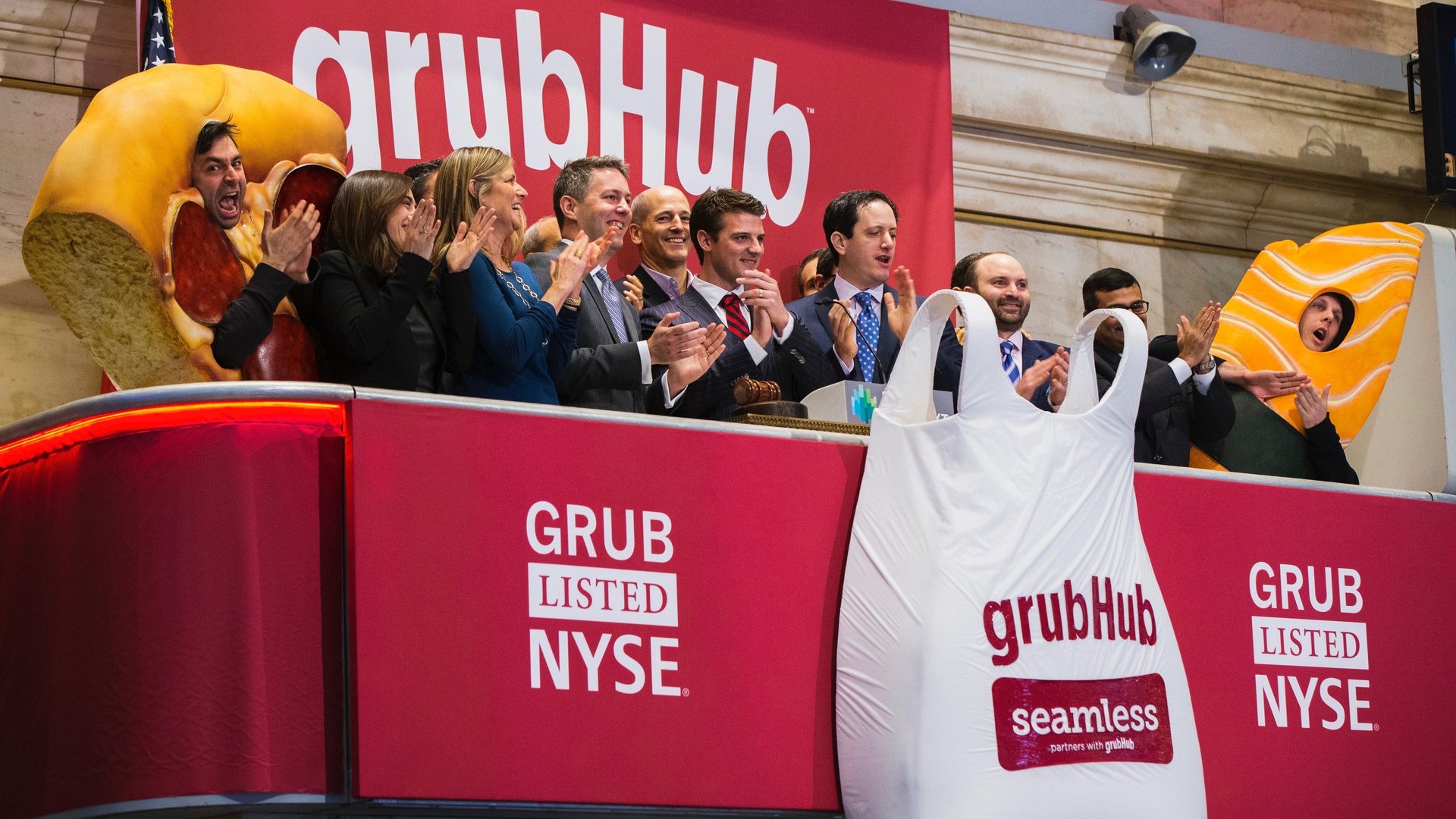GrubHub is a not a food delivery company, according to GrubHub
You may know GrubHub as a food delivery service. Right now, however, the company is intent on convincing a federal court in California that delivery isn’t really what it does.


You may know GrubHub as a food delivery service. Right now, however, the company is intent on convincing a federal court in California that delivery isn’t really what it does.
The case, Lawson v. Grubhub, has major implications for companies and gig workers in California, the US, and even abroad. If GrubHub succeeds with its argument, then its classification of delivery drivers as 1099 independent contractors (rather than W-2 employees) is legal under state employment law. If it doesn’t, the verdict could lead to a deluge of lawsuits from contractors who don’t feel quite as independent as their companies say they are.
Former GrubHub delivery driver Raef Lawson claims that he was classified, for tax purposes, as a 1099 independent contractor, but worked like a W-2 employee. Specifically, Lawson says he wasn’t a free agent, and instead worked under the company’s control. California law distinguishes employees from independent contractors based on a control test (pdf) that includes eight factors, one of which is whether the work being done by the plaintiff worker is part of the company’s core business. If it isn’t, then an independent contractor status is appropriate.
That distinction is why GrubHub COO Stan Chia testified last week that the company doesn’t really do delivery. Instead, Tech Crunch reports, he said that GrubHub considers itself ”the premiere marketplace connecting diners with restaurants.” Chia noted that the company started in 2004 as a marketing tool for restaurants and only added delivery services in 2015.
Counterpoint: In 2013, GrubHub merged with Seamless, which is a food-delivery service. The company is also acquiring Eat24, a Yelp food-delivery service, for about $287 million. When questioned about these moves on cross-examination, Chia told Lawson’s lawyer, “I don’t know that I would say we’re doing any of this to grow a delivery business.” (Counterpoint: GrubHub commands nearly a quarter of the digital ordering and delivery market in the US, second only to Domino’s Pizza, according to 2016 research from Morgan Stanley.)
While Lawson doesn’t officially represent anyone but himself—efforts to certify his claim (pdf) as part of a class-action lawsuit failed in 2015—his case matters to many. There are about 7,000 GrubHub drivers claiming the same in a pending class-action suit, according to Lawson’s lawyer Shannon Liss-Riordan, who has represented workers in cases against FedEx, American Airlines and Starbucks, and has of late fought for contractors against newer companies, like Uber and Lyft.
For them, the stakes are high. If delivery drivers aren’t part of GrubHub’s core business, they’ll continue to miss out on the protections that W-2 employee classification offers: minimum-wage guarantees, paid breaks and leave, unemployment insurance, and reimbursement for work-related expenses, among others. Indeed, hiring free agents costs a lot less for companies than taking on employees for whom they’ll owe payroll taxes and more. That’s why, as Tech Crunch reports, Uber’s employment counsel has been in court taking notes.
Companies tend to respond to these contractor claims the same way, essentially by denying that they’re in the business of doing what consumers know them for. Uber, for example, has argued that it’s a tech company, not a taxi service; that would justify its drivers being independent contractors, because driving is “not its core business.” (So far, Uber has settled US independent contractor claims, so the issue hasn’t been litigated.)
Still, the same argument in a slightly different context didn’t fly with the advocate general of the European Court of Justice, Maciej Szpunar. On May 11, Szpunar issued an advisory opinion (pdf) in Asociación Profesional Elite Taxi v Uber Systems Spain, SL, a case brought by the Spanish taxi drivers’ association arguing that Uber and its drivers lack the licensure required to participate in the transport business. Uber claimed driving isn’t its business, so it needn’t follow transport industry laws. Szpunar found, however, that “the Uber electronic platform, whilst innovative, falls within the field of transport.”
In his testimony, Chia said that most of GrubHub’s drivers like their independent contractor status. When Liss-Riordan questioned him about the thousands of former drivers suing the company over this very classification issue, Chia said he didn’t know the details but is “aware broadly of lawsuits against us.”
A verdict in Lawson v. GrubHub is expected this fall. Lawson is only asking for about $600 in reimbursement expenses, which is peanuts for the company. Yet the outcome of this case, if he’s successful, could be far more costly.